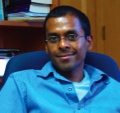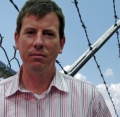Next: Research revelations
Posted Jan. 12/08
A leader in interdisciplinary research that addresses organizations, policy and interactions among the sectors of civic society, the Faculty of Public Affairs is committed to ensuring an outstanding learning experience for its students. Here’s what some of the newest teachers and researchers in our dynamic faculty are working on.

- Ingela Alger received her PhD from the University of Toulouse, France before coming to North America. She taught at Boston College prior to joining Carleton’s faculty.
Ingela Alger, associate professor, economics
If you know someone will come to your rescue, are you more likely to behave recklessly?
Moral hazard, the term used by the insurance industry and economists, is the prospect that a person insulated from risk will behave differently. In North America, someone with theft insurance doesn’t always lock the car door. But what if the person coming to your rescue isn’t a faceless insurance company, but a member of your own family?
Ingela Alger is investigating family ties, consequences of insurance systems on people’s choices, and economic development. Her research was sparked by the differences in family ties in her native Sweden and her husband’s native Mexico. Part of her research consists in examining the effect of insurance systems, particularly in developing countries where people rely on the help of extended family rather that formal market insurance.
“An insurance market would pool the resources of a large number of individuals, but it would be subject to moral hazard,” she says. “Voluntary intra-family insurance may outperform formal insurance, for it mitigates the moral hazard problem. It may even lead to moral protection, whereby members of families with strong ties are better insured and provide a higher effort than members in families with weak ties.”
Wondering further what effect climate had on family ties, Alger developed a model using evolutionary game theory that pitted family ties, climates and returns of effort against each other. She found that family ties will be stronger in milder climates than in harsh climates, and that altruism—helping your extended family—increases as protection of property rights decrease.
With a focus on institutions, the rules that govern economic exchanges and how they relate to information problems, Alger is also tackling questions related to the “theory of the firm”—a number of theories describing the nature of companies or corporations. She is looking at factors that determine the size of the firm.

-
An avid cyclist, Ratna Rueban Balasubramaniam is working on a side project on doping in sport. With no clear standards of legitimacy for regulatory bodies, due process and the presumption of innocence are violated in testing for banned substances.
Ratna Rueban Balasubramaniam, assistant professor, law
Like legal philosophers before him, Ratna Rueban Balasubramaniam explores the concept of the rule of law, the principle that no one is above the law, not even the government. Balasubramaniam is interested in the particularities of real world legal systems and how governments exercise power. His research at Carleton will examine the relationship between the rule of law and moral restraints, focusing on hybrid government regimes, like that of his native Malaysia, and on the reduction of personal liberties used to combat terror.
“I’m interested in whether in the post-9/11 world there is a failure to understand what the rule of law means,” says Balasubramaniam. “Can a government engage in measures such as torture and detention without trial without corrupting its political system? Can we accept a government breaking the law in a state of emergency?”
Schooled at the University of London, the Australia National University and the University of Toronto, Balasubramaniam’s understanding of law has been influenced by the societies in which he’s lived. the legal philosophy that holds that political stability results from a shared conception of justice that stands above individual disagreements doesn’t engage the role of compromise, he says.
“Outside of liberal democracies, this theory doesn’t work as well. instead, the law offers basic constraints so people can live together but their differences are alive and well,” says Balasubramaniam. “I want to examine this crack in the general theory of law to explain compromise in stable regimes.”
In the classroom, Balasubramaniam teaches courses on contemporary theories of justice and on the protection of international human rights.

- Jez Littlewood took the helm of the Canadian Centre of Intelligence and Security Studies (CCISS ) in July. CCISS is Canada’s first university centre dedicated to interdisciplinary research focusing on intelligence and national security.
Jeremy (Jez) Littlewood, assistant professor, NPSIA; director, Canadian Centre of Intelligence and Security Studies
As a soldier with the Parachute Regiment (Army) of Her Majesty’s Forces, he saw the troubles in Northern Ireland. As an undergraduate, he specialized in European post-Cold War security issues. As an academic he focused on international security. As an advisor to the United Nations Department for Disarmament Affairs and to the Counter-Proliferation Department of the UK Foreign and Commonwealth Office, he concentrated on biological weapon controls. Now, as director of the Canadian Centre of Intelligence and Security Studies (CCISS ), Jez Littlewood is overseeing research into intelligence and Canadian national security issues.
“Exploring Canada’s interests is new to me,” says Littlewood. “The country has a range of classic state security problems—sovereignty in the Arctic, NATO alliances, working with neighbouring states, and addressing international security problems —so these are interesting times.”
As director of CCISS , Littlewood oversees four streams of research: intelligence issues, security studies, terrorism and critical infrastructure protection. His own research, which he summarizes as covering the unpleasant aspects of our world, has been concentrated in the proliferation of weapons of mass destruction, terrorism and biological weapons controls.
“Post 9/11 there has been a shift from classical state security to a focus on terrorism, so there was a synergy with my research in the potential terrorist use of weapons of mass destruction,” he says. “Now that I’ve settled in at Carleton, I would like to do research on intelligence and national security issues, injecting a Canadian edge to the topic.”
As part of the new cluster of intelligence and national security studies for graduate students, Littlewood is teaching a course on intelligence, statecraft and international affairs and a course on terrorism and political violence.
“NPSI A will play a role in shaping the next generation of critical thinkers,” Littlewood says. “I want to expose students to the international security field and